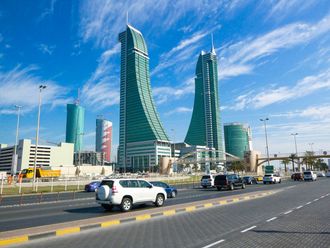Dubai: After decades of war, Afghanistan makes another step towards normality and looks to revive its tourism industry.
With the help of the United States Agency for International Development (USAID), Afghanistan's first national park Band-e-Amir was opened in Bamyan province last week.
According to the USAID office in Kabul, the agency spent about $1 million (Dh3.67 million) to establish the park which is situated on a vast plateau in the Hindu Kush mountains, comprising six deep-blue lakes and a picturesque landscape dotted by snow-covered peaks.
"The national park will draw visitors not only from all across Afghanistan, but all across the region and the world," US deputy ambassador Frank Ricciardone told the press after the opening ceremony, which was attended by the heads of Afghanistan's National Environmental Protection Agency and the Wildlife Conservation Society (WCS).
"It is a park created for the new Afghanistan," WCS president Steven Sanderson said. Besides improving Afghanistan's international image, the new national park is aimed to encourage economic development in the poverty-stricken region.
A local institution was founded to manage the area which covers 56.000 hectares. With the help of the WCS as well as the global environmental consultancy Ecodit and the Aga Khan Development Network, local small businesses are beginning to emerge in the 13 villages that are located within the park and small shops, restaurants, hotels and a campground are being built to serve the expected growing number of visitors.
Band-e-Amir, a former trading hub on the ancient Silk Road, has been a well-known destination for travellers since the late 1950s. It peaked in the 1960s and 1970s when the region was part of the so-called hippie trail, a term describing the route of the flower power kids hitchhiking from Europe to Central and East Asia at that time.
During the war years between 1979 and 2001, tourism was totally absent in the region and it won notoriety when the Taliban dynamited the 1,500-year-old Buddha statues in nearby Bamyan valley in 2001.
On the other hand, Bamyan had been relatively insulated from the violence that plagued other parts of the country during the war. At the moment, Band-e-Amir is visited by a few thousand Afghan tourists every year, but Western travel agencies are slowly rediscovering the exotic destination. Polish travel agency Logos Travel in Poznan is offering its first trip to Afghanistan this month, French travel book publisher Petit Futé recently released a new guide book for the country, and Afghanistan's private carrier Safi Airways is launching direct flights between Kabul and Frankfurt, Germany, on June 15.
However, the biggest problem the tourism entrepreneurs are facing is the generally poor security situation throughout the country. The foreign ministries of most western nations are still advising their citizens against travelling to Afghanistan, a move kept in perspective by Afghanistan's tourism minister Ghulam Farhai. "At the moment, security is our biggest challenge. When we get security, when we get good roads and hotels, Afghanistan will be a perfect travel destination," Farhai said.












